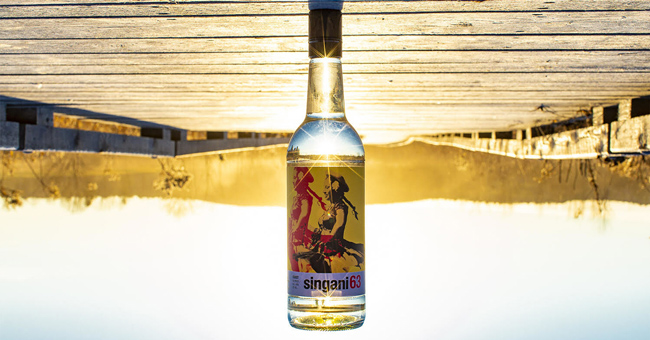The Alcohol and Tobacco Tax and Trade Bureau of the U.S. Department of the Treasury (TTB) has recognized singani as a unique type of brandy and a distinctive product of Bolivia, designating the grape distillate as its own subcategory. The new rule will go into effect on February 13.
The announcement caps off an eight-year campaign spearheaded by filmmaker Steven Soderbergh, a longtime singani enthusiast who launched his own expression, Singani 63, in partnership with Casa Real. The campaign to recognize singani began in 2014 and was co-sponsored by the Bolivian government in 2018.
According to a press release from Singani 63, the Bolivian government has, as part of the negotiations with TTB, agreed to also legally recognize bourbon whiskey and Tennessee whiskey as “distinctive products of the United States” and ban the sale of imposter products produced outside of the U.S.
“In 2014, when I sat across the table from 17 people representing four different agencies (Treasury, ATF, TTB, FDA), I felt like an ant at the bottom of the Matterhorn,” Soderbergh said in the release. “The good news, however, is that each agency in the end acted to fulfill their mandate of informing the public about what they’re drinking when they drink Singani. This recognition is certainly a high point in the long history of Bolivia’s unique spirit.”
Singani is the official national spirit of Bolivia and has been produced in the South American nation since the 16th century. By Bolivian standards, singani must be distilled from Muscat of Alexandria grapes at a minimum altitude of 5,250 feet, which helps create a unique aromatic quality, and its production is limited to specific regions of the country.
Under the current TTB rules, fruit brandies derived solely from grapes must be stored in oak containers for at least two years in order to be classified as “grape brandy” or “brandy,” while those stored for less than two years must be specified as “immature brandy.” However, Bolivian standards for singani have no minimum aging requirements and the spirit is not typically aged in wood.
The new ruling will also allow, but not require, singani products to label themselves as simply “Singani” without the word “Brandy,” similar to Pisco and Cognac.
But the TTB did not adopt every proposed rule from the petition. The Bolivian government urged the agency to grant an exception to its requirement for brandies to be bottled at minimum 40% ABV or be labeled as “diluted,” as many singanis are produced at a minimum 35% ABV. However, the agency said it will reconsider whether to allow an exception to the minimum bottling proof requirements in the future.
The agency said it does not believe the rules change to impact any existing labels.
“Our family has been producing Singani for nearly 100 years and it has been an absolute joy to see our product on bar shelves across the U.S. over the last nine years for the first time in our history,” Casa Real CEO Luis Pablo Granier said in the release. “To now have our life’s work recognized on a global stage and recognized by the U.S. Government is a moment my great-grandfather couldn’t and wouldn’t have dreamed of.”
